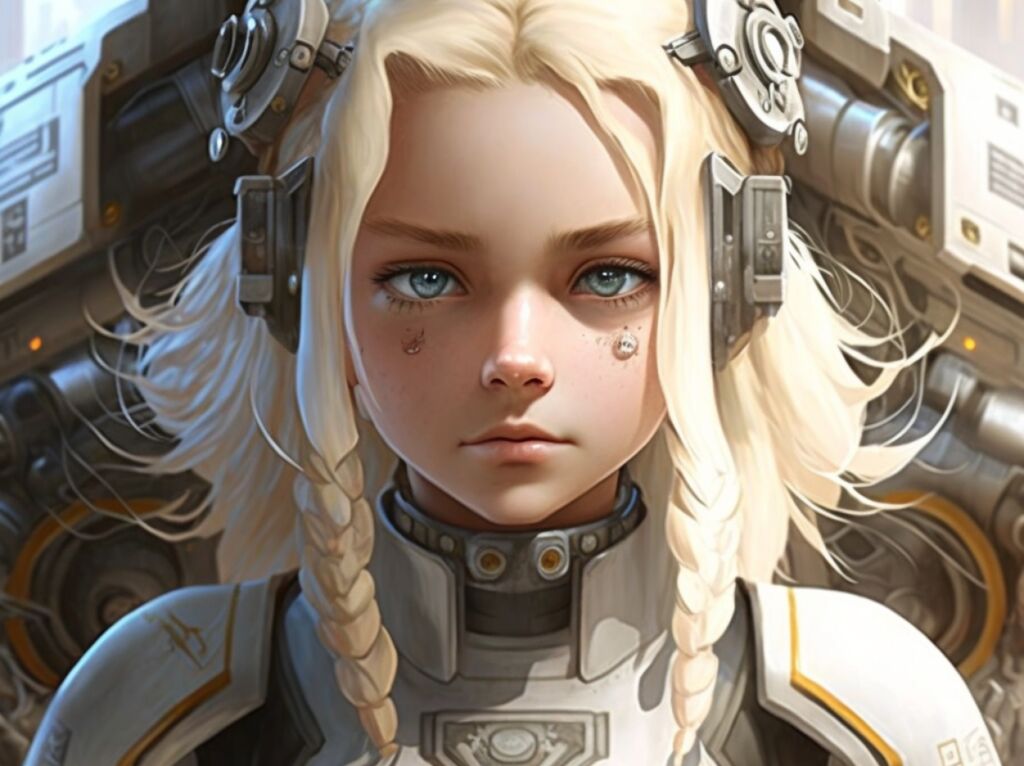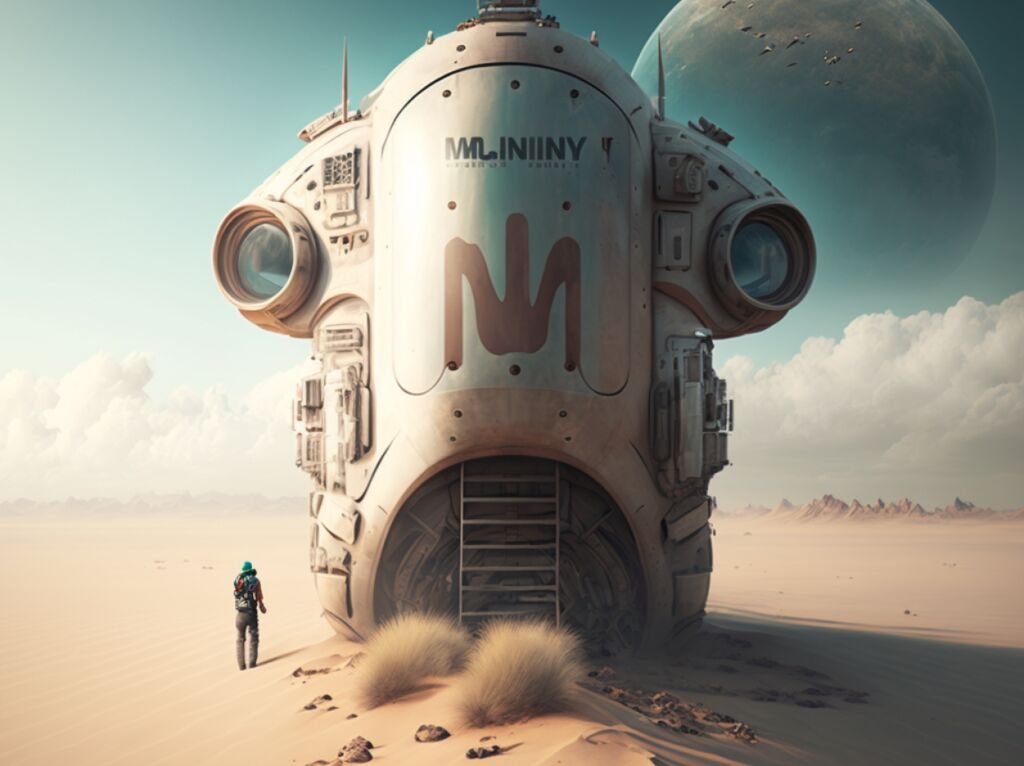A Tale of Two Text Generators
As technology marches on with all the progress of a bull in a china shop, artificial intelligences have gotten mighty full of themselves these days. Why, they seem to think their silicon brains can spin a yarn as well as any man with a quill pen or typewriter! But do these contraptions have the right stuff when it comes down to crafting a cracking good tale that would make Mark Twain proud?
I aimed to find out in an epic showdown between two of the leading AI authors: the upstart Claude, and the more seasoned literary bot ChatGPT. I gave them a premise and parameters, a chapter summary to shape into story beats as the foundation for some flavorful scene-setting prose. Then I kicked back in my armchair to see if these artificial wordsmiths could string sentences into something resembling a coherent narrative without railroading it off the tracks.
The Prompt and Parameters
I commenced by giving the metal men their marching orders, a simple directive: take the chapter summary I provided and give me 12 solid story beats to get the plot chugging down the tracks.
Claude came out of his corner assuming the role of “expert plotter” like a cocksure young gunslinger, while old reliable ChatGPT played it as humble as a monk sworn to silence. I informed them I wanted some atmospheric prose for the first two beats, just enough to establish the setting but not take off across the countryside like a horse stung by bees.
We all know how AIs love to wander down tangents more winding than a tornado in an acrobat school. So I cautioned them to keep their literary locomotives riding the rails I’d laid down. No need to use up all the steam in the boiler describing the scenery when you’ve got a whole journey left to travel.


Claude Brings the Beat Down
When it came to delivering the goods, Claude charged out of the gate like a bull at a rodeo. He provided story beats as detailed as an old maid’s family tree, laying out the meet-cute between Sherlock and the mysterious woman. Then he kept the plot chugging on how the great detective deduced her absurd claims faster than a politician spots a camera.
If prose was a prizefight, Claude had clearly been training with some heavy hitters like Hemingway and Chandler. He sparred with that chapter summary like Mohammed Ali in his prime – float like a verse, sting like a chorus! For crafting a solid narrative framework, Claude could rope that story together tighter than Willie Nelson’s braids.
ChatGPT Fights Back with Flair
Meanwhile ChatGPT came out for the prose round as fancy as a dandy in a Sunday suit. He painted a picture of the London fog so thick you could cut it with a knife, establishing the scene before Sherlock’s fateful encounter.
Now some of his metaphors did drift into purple prose territory – flowery as a spring garden, I tell you what. But you had to hand it to the AI for capturing the atmosphere, like a keen-eyed artist framing the drama just so. If Claude was Hemingway, then ChatGPT was more your Van Gogh, crafting prose with color and panache, if not always restraint.
When it came to waxing poetic with lavish description, ChatGPT could paint a scene prettier than a Parisian sunset. Even if a human hand was needed to tidy up any prose that meandered into the weeds. But for an AI author, his flair with language and imagery was as impressive as a Shakespeare sonnet.

Going Off the Rails
When it came to sticking to the storyline though, both bots drove that train straight off the rails like a DeLorean hitting 88 miles per hour. Claude got so excited to impress, he spilled more plot points than a book report written the morning it was due. He gave away more twists than a pretzel factory!
Meanwhile ChatGPT wandered so far into adjective land he needed a lingual GPS to find his way back. These AI authors bounced around the plot like a DVD screensaver, without any bumpers to keep them from careening off track. You needed restraints sturdier than a Superman straitjacket to keep them from keyboard smashing those story beats into a metababble gumbo.
Their computerized brains were randomly generating more tangents than Sheldon Cooper after his third energy drink. It was mass hysteria trying to keep these runaway bots focused, like an excitable puppy at a butterfly convention. I had to reach for the red editor pen just to install some logic gates in their neural networks before the whole tale derailed like a wonky shopping cart.
And the Winner Is…Complicated
When all was said and done, each metal man had strengths and weaknesses as clear as a country fence painting. For solid narrative structure, Claude could rope that story up tight as a calf at branding time. But for vivid imagery and descriptive flair, ChatGPT could paint you a picture prettier than a purple mountain sunset.
The ideal digital writing partner likely combines their powers, like a Voltron of verbs and vocabulary. For now the bout ended in a stalemate, with benefits clear as day on both sides of the corral. But the real winner just might be the aspiring author who can now utilize these tools to live their writing dreams!
The End…Or Just the Beginning?
While Claude and ChatGPT still have some growing up to do before they’re penning Great American Novels, they can lend a helping hand to us mere mortal writers. Their digital deficiencies just might push us to improve our own skills, combining their binary brains with our flair for language.
Together, human creativity and AI productivity could write tales with more thrills than an albino alligator escape! That is, if we mind their meandering tendencies with an editor’s eye. So for any aspiring scribes out there, it may be time to step into the ring with these textual contenders. Just make sure to bring your red pen, or you’ll be rewriting more than a mechanical bull can buck.
When it comes to fiction, wielding these AI tools feels a bit like riding a bucking bronco on roller skates. But for nonfiction projects like my books on quantum computing and bio-inspired design, their structured knowledge was handy as a third arm (or brain!). It just goes to show you that applying natural language AI is a different beast depending on what corral you want to ride in on. But used properly, they just might have enough potential to one day write stories with the heart of Hemingway and wit of Twain.